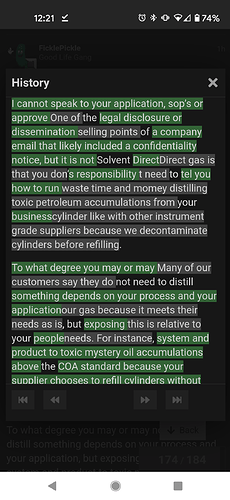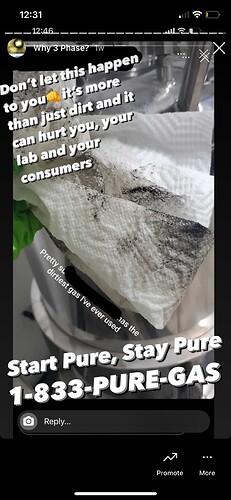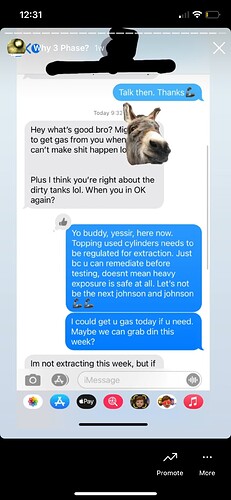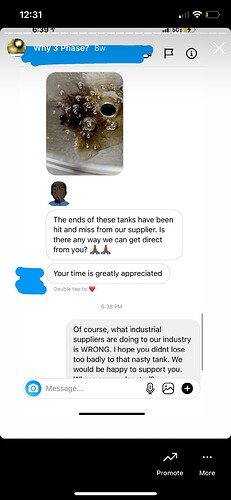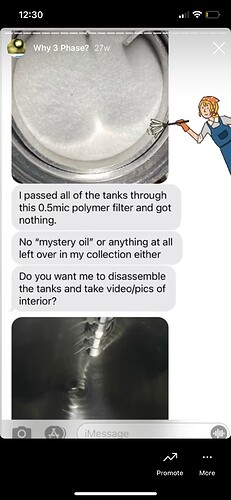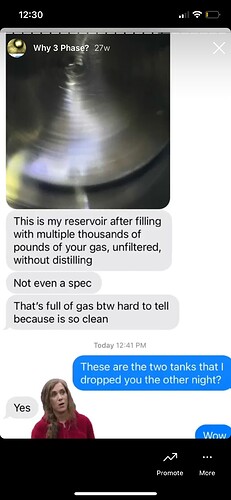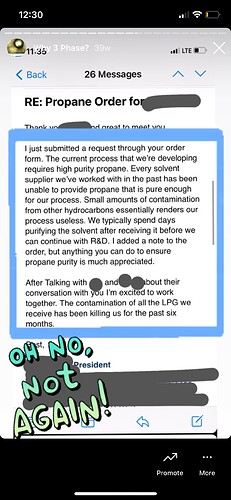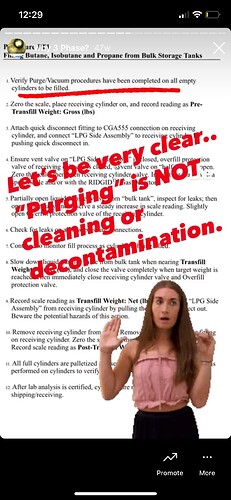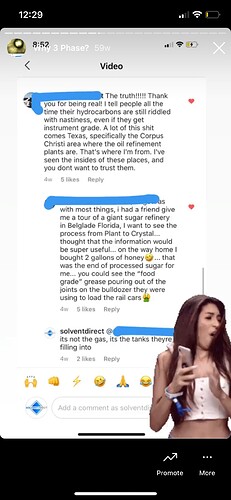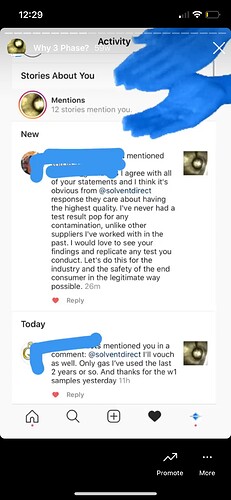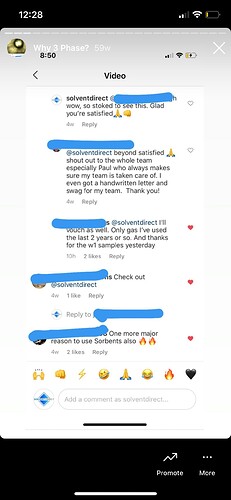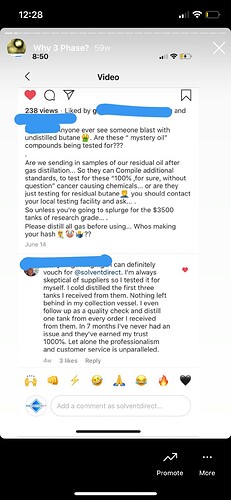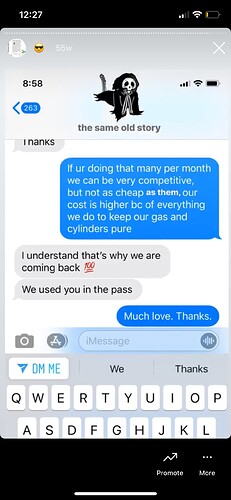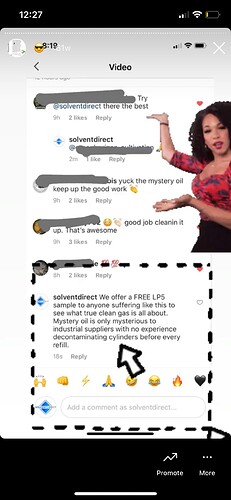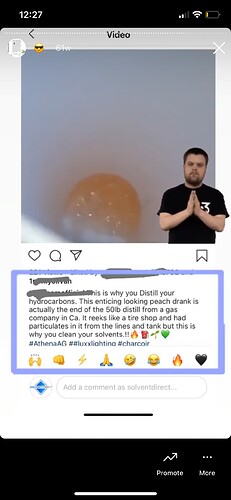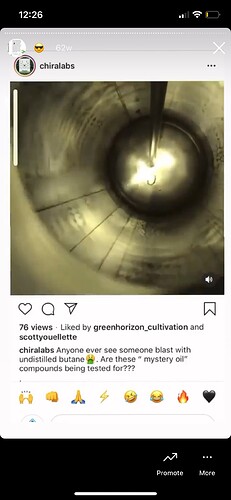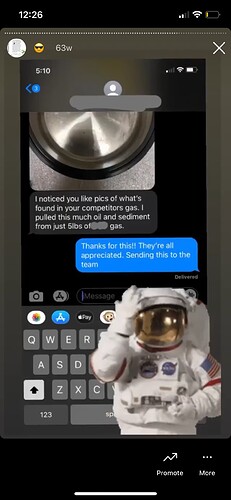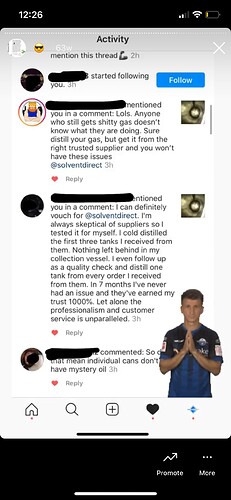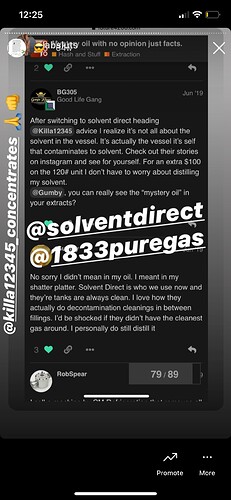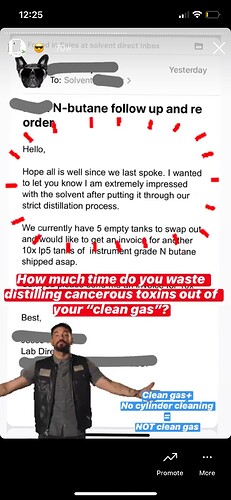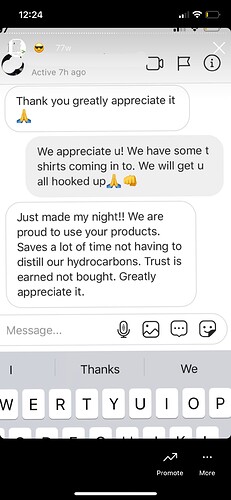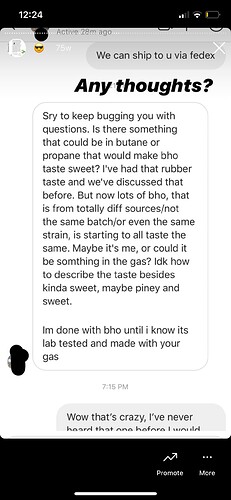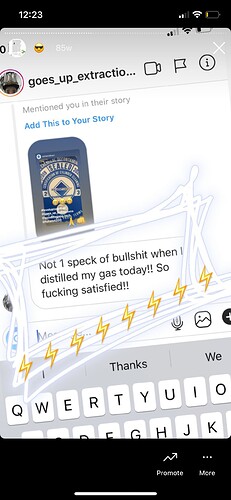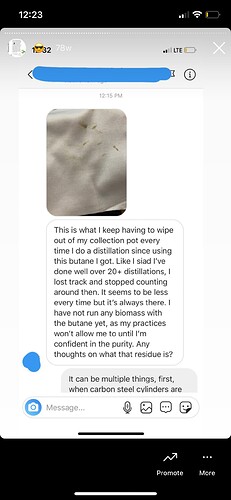For the most part, mystery oil is not a mystery. That’s just what industrial suppliers want you to believe.
Even new cylinders will contain industrial stamping lubricant residue and metal burring from the cylinder manufacturing process if they are not decontaminated before refilling.
If you top cylinders repeatedly without cleaning, you begin to accumulate the impurities on the COA. To what level these impurities accumulate depends on the length of the dip tube, the total weight of the refill and the amount of refills since it was last decontaminated or verified not to have impurity.
Example: If the gas is 99.5% minimum and you refill the cylinder to 100lbs, then you are talking about 1/2 pound of variable contaminate. If the diputube is cut short (which we see from our competitors regularly) then you are leaving behind some if not all heavy metals and other impurities. If you refill a second time, but the cylinder already has 10lbs left over from the previous refill, then what is the ratio of impurity to pure product?
Hard to say without cylinder decontamination. Yes, we could pay for testing to determine if there are dangerous impurities lingering, but we found it more cost effective and consistent with other safety standards to just decontaminate the cylinders before refilling.
Additionally, the moisture content and impurities sitting at the bottom of the cylinder create corrosion and decomposition of the carbon steel cylinder. This is why there are federal requirements for requalifying cylinders every 5-10 years depending on the manufacturer. The decomposed carbon and rust become part of the toxic cocktail.
Finally, the potential for back flow contamination from other users without decontamination before refilling really opens Pandora’s box. The pesticides, cross contaminations and other variables that could be introduced by other users backfilling is limitless.
This is why we use the coffee mug example. No matter how clean the pot of coffee is, a dirty mug compromises the chain of custody.
Visit our website and click shop + hydrocarbon gas to see video of mystery oil being washed out from a cylinder.
We are all for more research and will support anyone interested in studying this more closely with us.

